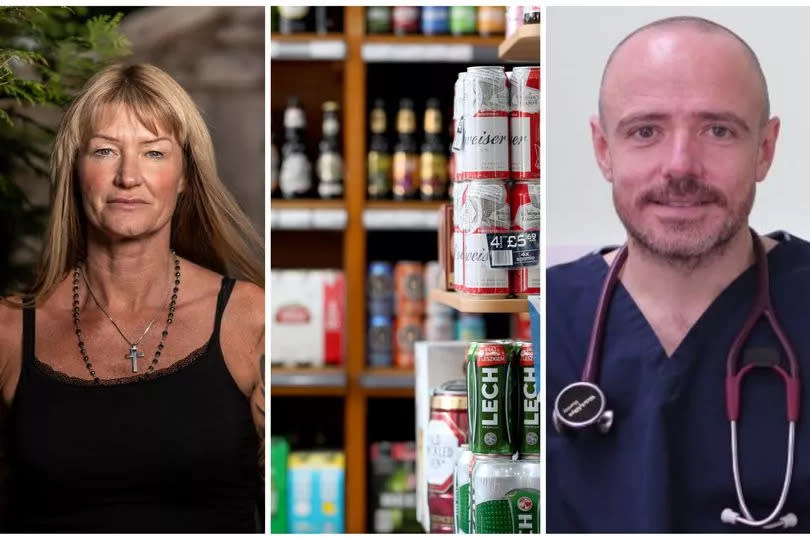North East alcohol deaths hit record high as Newcastle mum hits out at ads glamourising booze

As data shows the North East has the highest rate of alcohol-related deaths in England, a Newcastle mum who has struggled with booze has called for end to the "glamourisation" of drinking.
Karen Slater, 55, grew up around alcohol in a "hostile" environment in Benwell and has struggled with addiction herself. She said she was not surprised to see rates of death "spiralling" - rates are up 37% in women and 31% in men - since 2019. This comes as campaigners including the 60-plus organisations of the Alcohol Health Alliance call on the Government to do more to protect the public from alcohol harms.
The AHA has made four recommendations, which include bringing in tighter regulations on alcohol marketing, mandatory alcohol labelling, long-term funding for early health interventions and bringing in minimum-unit pricing - as has been done in Scotland.
This week, Office for National Statistics figures have shown that in the North East alcohol-related deaths hit a record-high in 2022, reaching 576. That's a rate of 21.8 deaths per 100,000 people, and puts the region worst in the country, though Scotland and Northern Ireland have higher rates.
Karen said: "I am not surprised to see illness and deaths spiralling especially with all of the glamourous alcohol advertising. I don’t want to be bombarded with alcohol advertisements portraying false and unrealistic images of glamour and success.
"The reality I know and witness daily is the exact opposite. I see pain, misery, broken families, children neglected, unwanted pregnancies, crime, violence, and abuse. Even for people who have an addiction and can’t drink without it seriously harming their health or worse you can’t escape it.
"Every night there are adverts, and as soon as you’ve seen that advert you think about it. For someone having a bad day or a bad moment that could trigger a relapse. I’ve been there."
Dr James Crosbie, a GP who leads the region's NHS work on alcohol harms, said: "Once again this data shows that alcohol is causing serious illness and has contributed to the death of thousands of people here in the North East, more than anywhere else in the country.
"Alcohol can harm the body in a lot of different ways. In the short term there are the dangers of binge drinking & anti-social behaviour, but heavy drinking can also quite quickly cause severe diseases of the liver and pancreas. In the longer term we see other health risks including liver cirrhosis & brain damage, increased risk of at least seven types of cancer, heart disease and stroke."
Dr Crosbie also spoke of how alcohol can worsen mental health, and said if the UK is serious about tackling alcohol harm, politicians needed to restrict advertising and promotions.
Susan Taylor, Head of Alcohol Policy for the North East alcohol programme Balance, said: “Sadly once again we have seen a tragic increase in alcohol deaths, with the worst rates in our region. Every one of these deaths represents a life wrecked and a grieving family left behind.
"At the same time, every day, the alcohol industry bombards us with advertising, fails to provide enough health information about the risk of drinking alcohol and makes its products available for pocket money prices. Our region is the hardest hit when it comes to alcohol harms. More must be done to prevent people from becoming ill and dying from alcohol related causes and to reduce the burden on our NHS, local authorities and emergency services."
In response to the findings a spokesperson from the Department of Health said this week: “We are working to prevent alcohol deaths by ensuring people are given clear and accurate advice about the potential risks that are posed by drinking above the guidelines, including encouraging people to try more low and no-alcohol drinks.
“In addition, through our 10-year alcohol and drug strategy, supported by £532 million, we are helping up to 54,500 more people receive drug and alcohol treatment, and we are also funding specialist alcohol care teams at one in four hospitals in England.”

 Yahoo News
Yahoo News 
